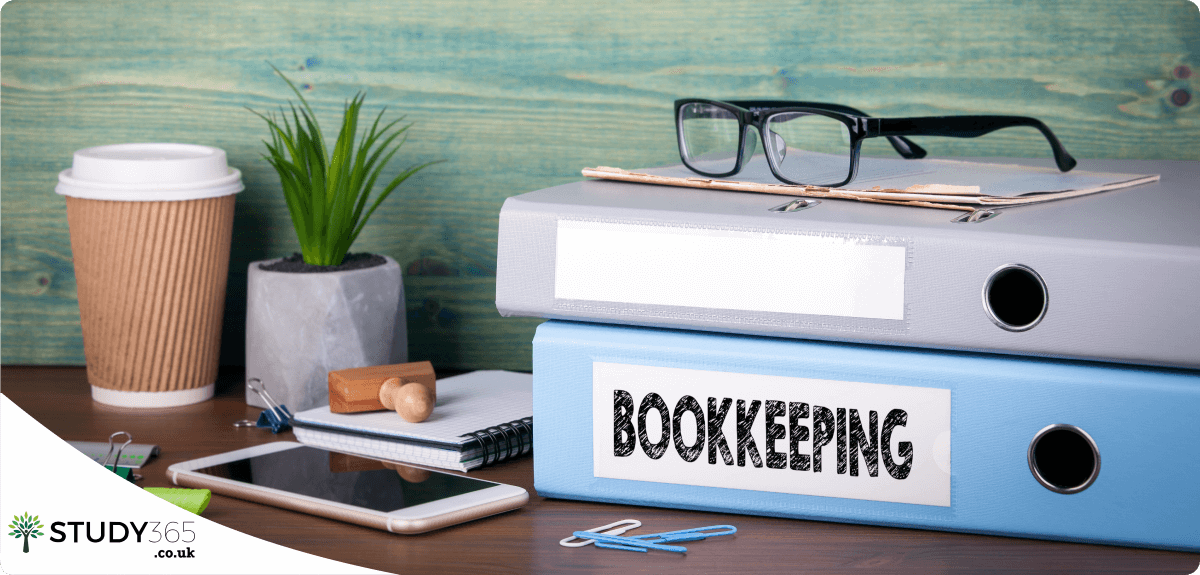10 small Business Bookkeeping tips

Bookkeeping is the act of recording financial transactions such as sales, expenses and even purchases of a business. It is really important for any business due to many reasons. For instance, bookkeeping can make you have a better grip over the finances of your company. This way you can devise informed plans for your business in order to promote its growth. So, no matter whether you are an e-commerce site or a grocer, bookkeeping can really help your small business.
1.Maintain separate Accounts
Doing your personal and business transactions from one account will appear as an easy thing at first sight. However, when bookkeeping becomes a hectic task, you will realise that this idea was really a bad one. This is why it is important for you to maintain two separate accounts for personal and business transactions. If you have taken any bookkeeping course, we assume that you know this rule of thumb.
In fact, by having two separate accounts for personal and business transactions you can have many benefits. For example, you can easily stick to your company’s budget. Also, you can easily maintain accounting records. Above all, this will allow you to maintain the finances of your business in an orderly manner.
2.Maintain Records Appropriately
No matter what you do, staying organised can make your life easy. Applying the same principle to bookkeeping, make sure to stay organised with your receipts and business invoices. Remember, if you neglect to maintain your business records appropriately, one day it will lead your business to fail. However, if you have followed a bookkeeping course, you will know the importance of maintaining such a database.
In fact, if you love paperwork, you can manually store these records. While doing this, don’t forget to use some sorting strategies for proper organising of documents. This way, your life would be easier, when the time comes for tax rolls. However, if you are comfortable with maintaining electronic records, store them in a device. Your documents would be much safer, if you can store these records in the cloud.
3. Make sure to check the books regularly
As an owner of a small business, you need to perform routine checks on the books. This way you will know where your business is heading. Whether it is failing or growing. Especially, such routine checks will save you time when the time comes to pay taxes.
However, to check the books, you will need to have a basic understanding of bookkeeping techniques. Without such understanding, checking the books would be a nightmare. So better take a bookkeeping course now. This could make you get a thorough understanding on how your business functions.

4. Use a Software for Bookkeeping
As we live in a world of technology, there are various software available for various accounting purposes. So, for bookkeeping, you can easily use one of them. In fact, these software’s will provide you different levels of components related to bookkeeping such as:
- Cashbook
- Ledger and Cashbook
- Cashbook, Ledger including inventory
- Cashbook, Ledger, inventory as well as Foreign Currency transactions
However, if you are an absolute beginner to bookkeeping, some functions/components of this software would be too much to deal with. Also, you will have no clue to select the software which best fits you. This is why we suggest you start a bookkeeping course. Later, you can easily work with a software, which matches your business requirements.
5. Getting ready for Unforeseeable future expenses
No one can predict the future and the same relates to businesses. It is very difficult to anticipate all expenses which may occur in a business in the future. However, try to reserve some finances for the unexpected future expenditures. You can effectively do this by maintaining records of business expenditures such as inventory, utilities, supplies, etc.
Also, best online bookkeeping courses would teach you how to track these expenses effectively. Not only this will make you prepared for unforeseeable future expenditures, but will also secure your peace in mind.
6. Make sure to do a Quarterly Review
Performing a quarterly review of your business accounts will tremendously help your business. So, at the end of each quarter, pay special attention to the following:
- The Status of Sales: Whether it’s growing or declining?
- The Status of Revenue
- The Status of Late paying customers: Whether they have increased or decreased?
Also, it’s much better if you can identify particular trends in your business. Apart from that, check how your profits are doing. Especially, compare the annual business reports year-to-year.
However, don’t worry if you lack this knowledge at the moment. You can easily contact your accountant as he/she can definitely help you with this.
7. Regular Scrutiny on Receivable Accounts
Any bookkeeping course will teach you how important are receivable accounts for a business. In fact, when the customer’s do not pay, it will badly affect the cash flow of your business. So, make sure to properly maintain your receivable accounts while updating them then and there. Also, do not hesitate to contact the late payers in order to ask them what you owe.
8. Seek Professional Advice
Even if you have zero knowledge on the subject, don’t avoid bookkeeping at all costs. It will only make your business to break soon. Until you complete a bookkeeping course and acquire knowledge, please hire a professional bookkeeper. This way you can effectively update your financial database while noting down the direction of your business.
Remember, professional bookkeepers charge you a substantial amount. Therefore, upon completing a bookkeeping course try to bookkeep on your own and save the money.

9. Correctly Record Deposits
Keeping a track of your deposits is a crucial requirement for any small business owner. In fact, record the cash inflows to your business in the form of sales income, loans, and your personal funding. If you do so, you can easily avoid sparing the money, which isn’t your income for taxes. This is why any bookkeeping course makes it a priority to teach you on the correct recording of deposits.
10. Reserve money to pay taxes
Any well performing business will be liable to pay taxes. This is an inevitable truth. Therefore, make sure to systematically allocate money for this purpose.
Remember, if you forget to pay taxes even by mistake, this will incur huge penalties for you. So, reserving money every month or after the performance of every contract can make you dodge the bullet easily
Start your Bookkeeping Courses with Study 365
As you have read the above tips, now you know the importance of knowing bookkeeping as a small business owner. So why not get started with study 365? We provide you the most flexible, affordable and high-quality bookkeeping course ever.
Study 365 is a globally acclaimed online education provider based in the UK for hosting online courses. With an expert panel of lecturers, we deliver each of our courses for you. Therefore, with a little investment you can obtain a world class certification from study 365.
However, if you have any queries about our bookkeeping courses, please email us at: [email protected]

0 responses on "10 small Business Bookkeeping tips"